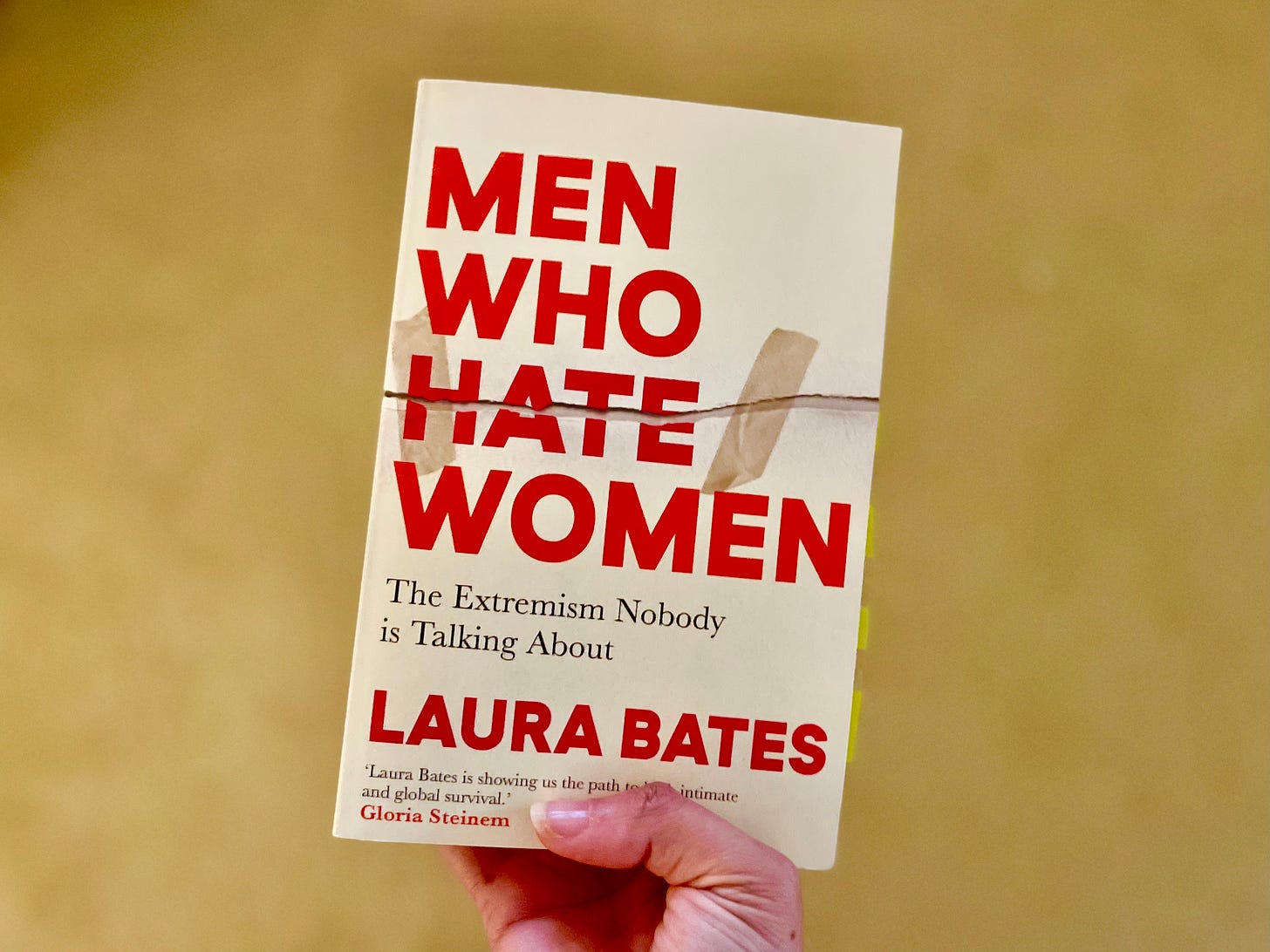My Journey Through "Men Who Hate Women" by Laura Bates
Exploring the Dark World of Online Misogyny
Recently, I re-read the thought-provoking book "Men Who Hate Women" by Laura Bates. This book dives deep into the dark world of online misogyny and its real-world impacts. Here’s what I took away from this powerful read.
Laura Bates does an incredible job of shedding light on the pervasive issue of misogyny that exists both online and offline. She explores various online communities where hatred towards women is not only prevalent but encouraged. This was eye-opening for me, as it revealed the extent of the problem and how it affects women globally.
Types of Men Discussed
Bates categorizes the men involved in these communities into several distinct groups, each with their own ideologies and motivations:
Incels (Involuntary Celibates): These men believe they are entitled to sex and blame women for their lack of romantic success. They often harbor deep resentment and anger towards women, which can lead to dangerous and violent behavior. Bates provides chilling examples of how this ideology has led to real-world violence, making it clear that this is not just an online issue but a serious societal problem.
Men's Rights Activists (MRAs): While some MRAs genuinely advocate for men's issues, many within this group use it as a platform to attack feminism and women's rights. They often claim that men are the real victims of gender discrimination. Bates delves into the rhetoric used by MRAs and how it perpetuates harmful stereotypes and undermines genuine gender equality efforts.
Pick-Up Artists (PUAs): This group focuses on teaching men how to manipulate and deceive women into having sex with them. Their tactics are often predatory and disrespectful, treating women as objects rather than individuals. Bates exposes the toxic culture within the PUA community and the damaging effects it has on both men and women.
MGTOW (Men Going Their Own Way): These men choose to separate themselves from women entirely, believing that relationships with women are inherently harmful. They advocate for complete independence from women and often express extreme misogyny. Bates explores the psychological and social factors that drive men to join this movement and the broader implications for society.
Trolls: These individuals derive pleasure from provoking and harassing women online. Their actions can range from sending abusive messages to orchestrating large-scale harassment campaigns. Bates highlights the devastating impact that online trolling can have on women's mental health and well-being.
Reading this book was both enlightening and disturbing. It made me reflect on my own experiences and the experiences of women around me. Bates' detailed accounts and thorough research made it clear that this is not an isolated issue but a widespread problem that needs urgent attention. The stories of women who have been targeted by these groups were particularly moving and underscored the real-world consequences of online hate.
Key Takeaways
Awareness is Crucial: One of the biggest takeaways from the book is the importance of awareness. Understanding the existence and impact of these misogynistic communities is the first step towards combating them. Bates emphasizes that we cannot address what we do not acknowledge, and raising awareness is a critical first step.
The Power of Education: Bates emphasizes the need for education to counteract these harmful ideologies. Teaching young people about respect, equality, and the dangers of online hate can make a significant difference. She advocates for comprehensive education programs that address gender stereotypes and promote healthy relationships.
Support Systems: The book highlights the importance of support systems for those affected by online misogyny. Whether it's through friends, family, or professional help, having a support network is vital. Bates also calls for better resources and support services for victims of online harassment.
Legal and Policy Changes: Bates argues for stronger legal protections and policies to combat online misogyny. She highlights the need for social media platforms to take more responsibility for the content they host and for governments to implement stricter regulations to protect individuals from online abuse.
"Men Who Hate Women" is a must-read for anyone looking to understand the darker side of the internet and its impact on society. Laura Bates' work is a call to action for all of us to stand up against misogyny and work towards a more equal and respectful world. Her thorough research and compelling storytelling make this book both informative and engaging.
Reading this book is always a challenging but necessary experience. It always continues to open my eyes to issues I wasn't fully aware of, when I first read the book, and motivates me to be more proactive in addressing them. I highly recommend this book to anyone who wants to make a difference. It’s a powerful reminder that we all have a role to play in creating a safer and more inclusive society.



